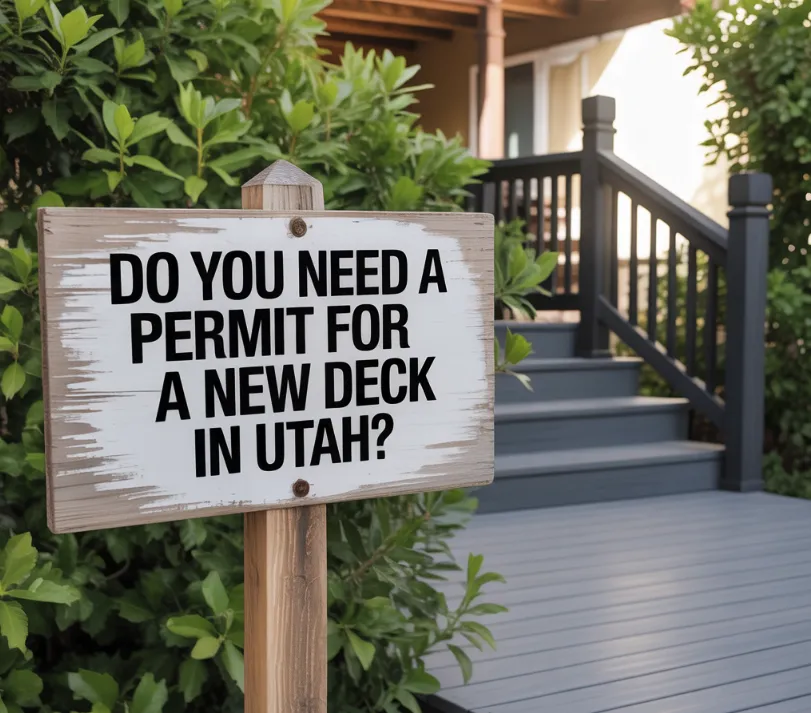
Do You Need a Permit to Build a Deck in Utah? Here's What You Should Know
Do You Need a Permit to Build a Deck in Utah? Here's What You Should Know
By Warrior Built Company
Let’s cut to it: permits aren’t the most exciting part of building a deck — but they’re one of the most important.
If you’re a Utah homeowner or contractor, and you're about to tear into that backyard project, you need to know this upfront: many decks in Utah require a building permit — and skipping that step could cost you big time later.
At Warrior Built, we build solid, code-compliant decks that are made to last — and that starts with knowing the rules.

So, Do You Need a Permit? The Short Answer:
You DON’T need a permit if your deck is:
Detached from your home
Under 200 sq ft in size
Less than 30 inches above the ground
No roof, covering, or walls
Not part of your required exit path (front/back door access)
That kind of deck is often considered a "freestanding platform" and doesn’t typically require a building permit in many Utah cities.
⚠️ BUT you still might need zoning approval or to meet setback rules. Don’t assume. Check with your city.

You DO need a permit if your deck is:
Attached to your home (even by a ledger board)
Over 200 sq ft
More than 30 inches off the ground
Covered (roof, pergola, shade system, etc.)
Built over a basement walkout, hot tub, or slope
Used as a main entry/exit from your house
If you’re building anything that might affect structure, safety, or access — your city’s going to want a look at it.
Local Examples Across Utah
Every city has its quirks, but here’s what we’ve seen:
Salt Lake City:
Permit needed if over 200 sq ft, attached, or over 30" tall
Small, low, detached decks might slide through without one
Herriman & South Jordan:
You’ll need a permit for almost anything attached or elevated
Plans, site layout, and inspections required
Utah County (Lehi, American Fork, etc.):
Even freestanding decks need zoning review
Covered decks = full permit package
Pro Tip: If your deck is visible from the street, someone will call it out if it’s not permitted. Don’t risk it.

What Happens If You Skip the Permit?
You might think you’re saving time or money, but here’s what could hit you:
Stop work orders (your project gets shut down mid-build)
Fines and fees from your city
Tear-it-down notices for non-compliant decks
Delays in selling your home if the appraiser flags it
Insurance denial if something goes wrong
We’ve seen it — it’s not worth it.
What the Permit Process Looks Like
Here’s how it usually goes:
Create or get drawings of your deck design (we can help)
Submit plans to your city’s building department
Pay permit fees (usually a few hundred bucks)
Schedule inspections for footing, framing, and final walkthrough
In most cities, it takes about 1–2 weeks for approval — depending on the season.
Need help getting through this part? We’ve got your back.
Warrior Built’s Take
We don’t cut corners. We build decks that pass code, inspections, and the test of time. So if you’re wondering whether your project needs a permit, ask us before you build. We’d rather help you prep right than fix something later.
Final Thoughts
Permits aren’t red tape — they’re part of doing it right.
If you’re building a deck in Utah and want peace of mind (and a smooth resale later), make sure you're following the rules from day one.
And if you’re not sure?
Call Warrior Built.
We build decks the right way — from the ground up.
